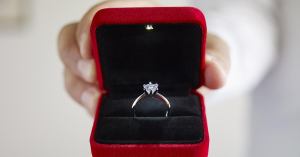Nevada researchers are looking into the first possible case of coronavirus reinfection in the U.S. The scientists said a 25-year-old Reno, Nevada man first tested positive for COVID-19 in mid-April before testing positive again in June. Between the two positive tests, the patient tested negative twice. The man’s illness the second time were reportedly worse than his first.
“We examined the genomic material of the viruses and samples to investigate this,” Mark Pandori, director of the Nevada State Public Health Laboratory at the University of Nevada, Reno School of Medicine, told Nevada Today. “It is just one finding, but it shows that a person can possibly become infected with SARS-CoV-2 a second time.” Pandori’s team worked with the Washoe County Sheriff’s Office Biology Unit to test specimens and lab samples, confirming the specimens were from the same patient. The research was published online but has not been peer-reviewed yet, notes NBC News.
Videos by PopCulture.com
During the 1st infection in April, patient recovered after about a month in isolation, testing negative for viral RNA in 2 subsequent tests. Patient was well until end of May, became ill and tested positive 2nd time. This time needing hospitalization & oxygen support. (2/n)
— Prof. Akiko Iwasaki (@VirusesImmunity) August 28, 2020
Pandori said possible reinfection cases are a “warning sign” that people can catch COVID-19 multiple times and it is hard to predict how bad the illness could be the second time. “If reinfection is possible on such a short timeline, there may be implications for the efficacy of vaccines developed to fight the disease,” Pandori told Nevada Today, adding that it could have “implications” for herd immunity. He did caution that the Reno case is just a “singular” finding and “does not provide any information to us with regard to the generalizability of this phenomenon.”
This is the first reinfection case in the U.S., among almost 6 million cases in the country. Despite the rarity of reinfection so far, Pandori said that anyone who has already had the coronavirus cannot “necessarily be considered invulnerable” from the virus. “The evidence so far suggests that if you’ve been infected and recovered, then you’re protected for some period of time,” Dr. Ashish Jha, director of the Harvard Global Health Institute, told NBC News. “We don’t know how long, and we’re going to find individual cases of people for whom that’s not true.”
On Monday, another case of coronavirus reinfection was discovered in Hong Kong. In that case, a 33-year-old man tested positive four months after his first battle with the virus, researchers said. The man did not show symptoms before testing positive a second time, reports The New York Times. One patient in Belgium and one patient in the Netherlands also reportedly became reinfected with the virus.








